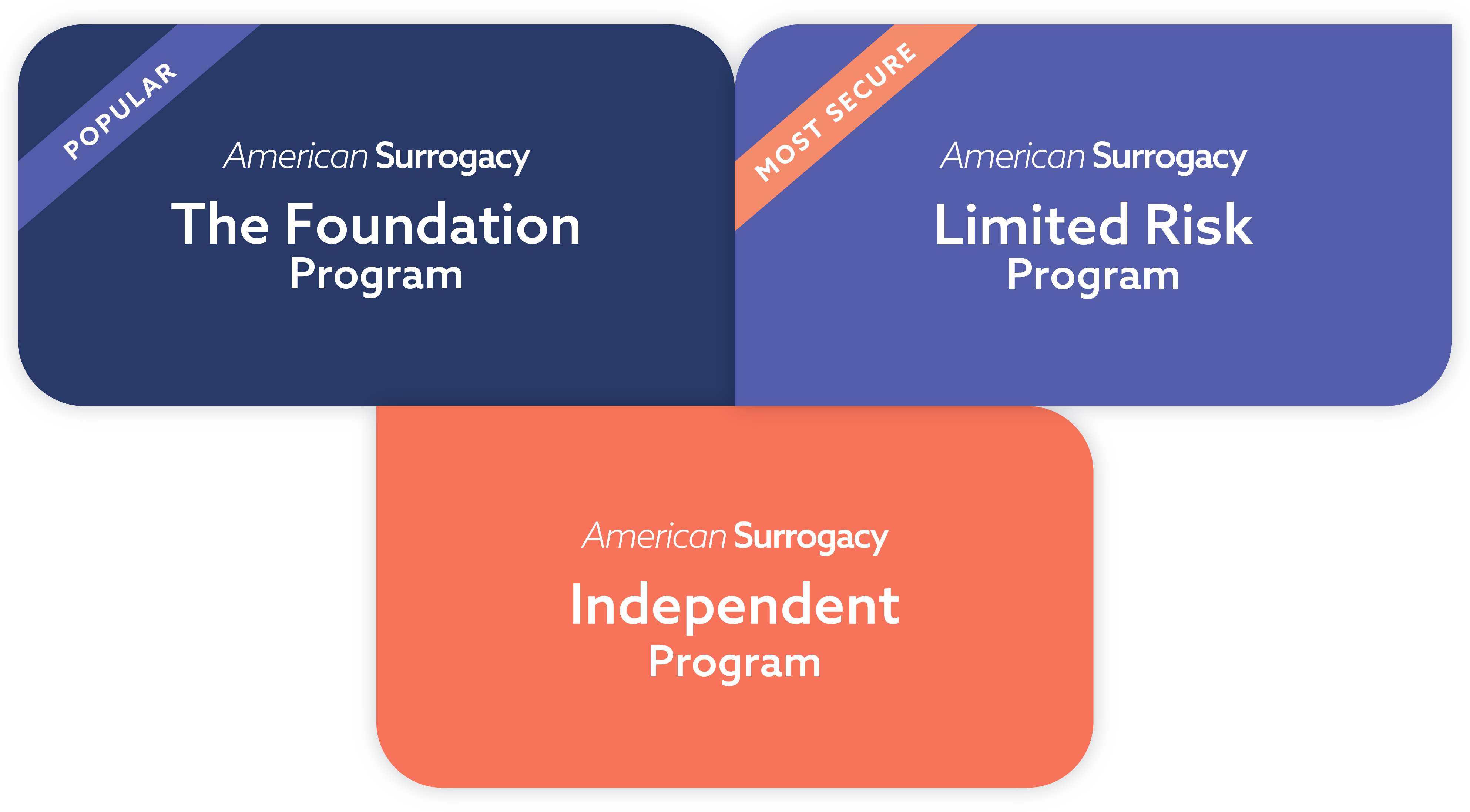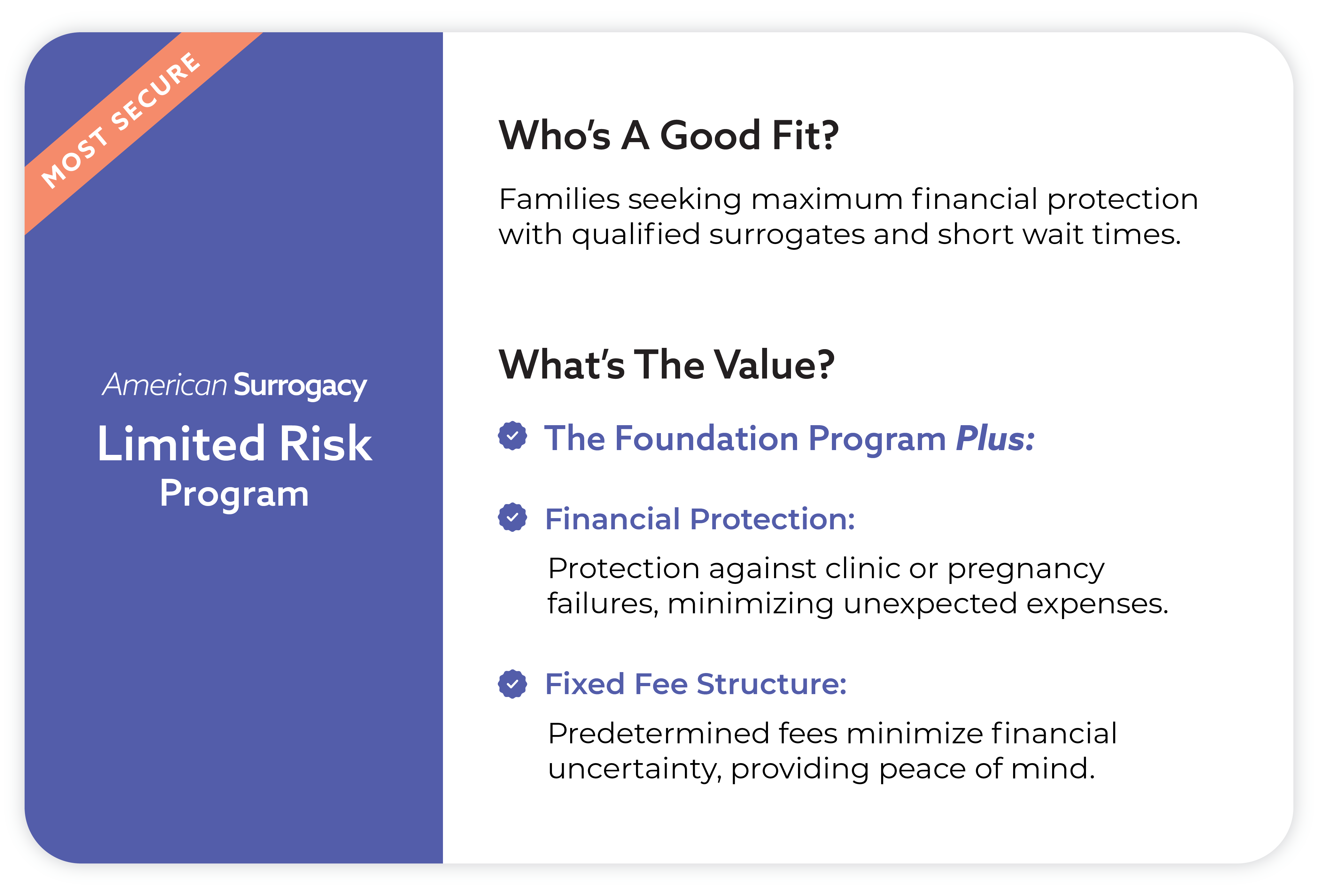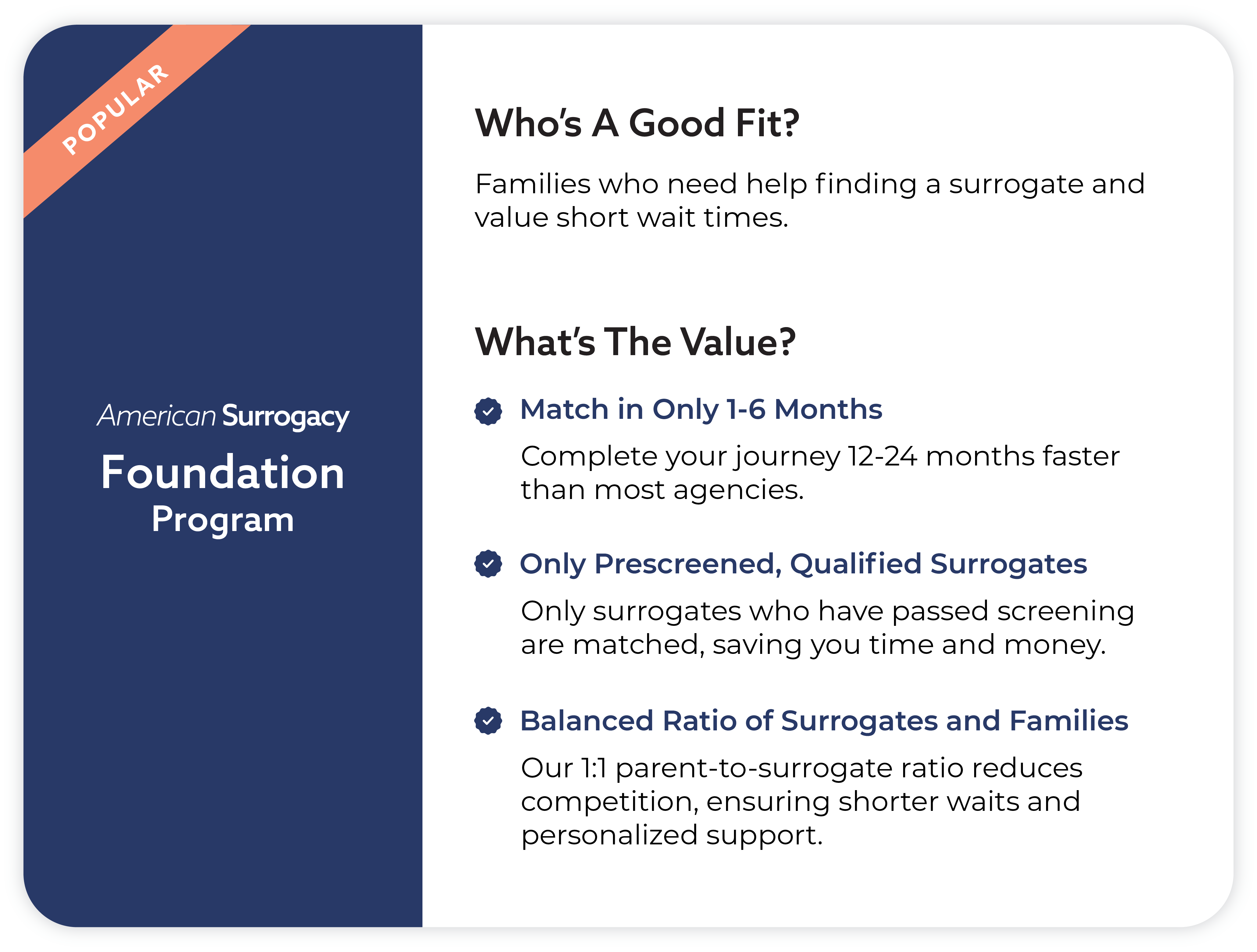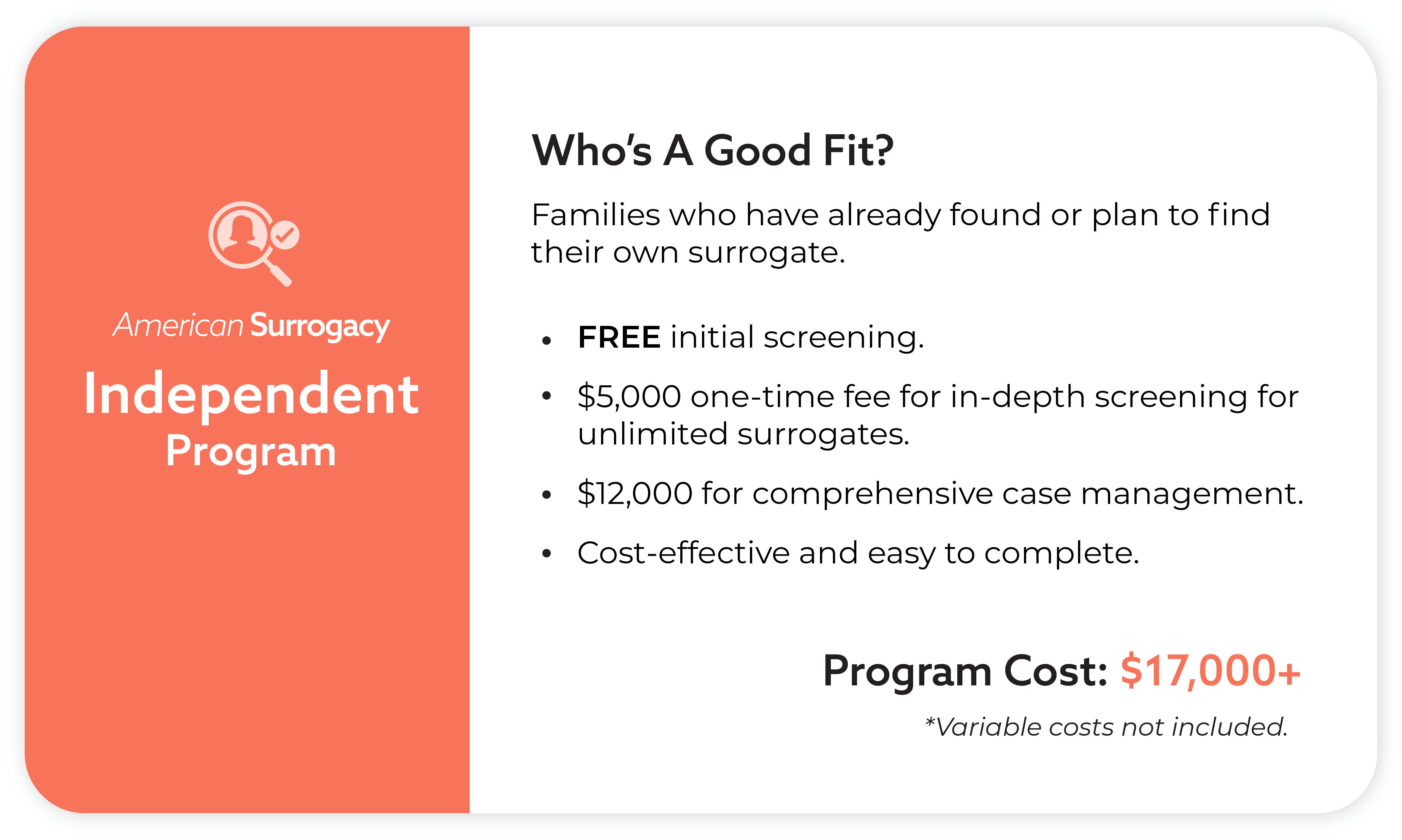Delaware surrogacy law can be complex, but with the right guidance, families can navigate the process with confidence.
Whether you’re considering becoming a surrogate or are an intended parent looking to grow your family, understanding Delaware's unique legal landscape is essential. In this guide, we'll explore Delaware's surrogacy laws and provide insights on the surrogacy legal process.
Have questions about surrogacy laws in Delaware? Contact us today to schedule a consultation with one of our legal experts.
Delaware Surrogacy Laws
Delaware does not have specific surrogacy laws or statutes, but surrogacy arrangements are generally permitted as long as no law explicitly prohibits them. Surrogacy arrangements in Delaware must be approached carefully, with each case considered individually based on the specifics of the agreement.
While there are no clear-cut laws regulating surrogacy in Delaware, surrogacy agreements are typically governed by contract law. It's important to work with an experienced surrogacy attorney to ensure that all legal rights are protected for both the intended parents and the surrogate.
Is Paid Surrogacy Legal in Delaware?
Yes, paid surrogacy is legal in Delaware. However, because the state lacks explicit surrogacy laws, it is important for intended parents and surrogates to carefully draft surrogacy contracts that outline the terms of compensation and responsibilities.
At American Surrogacy, we assist clients across the country, including Delaware, to connect with surrogates in states where paid surrogacy is legally supported. If you're seeking a surrogate in a state with more robust legal protection, we can match you with surrogates who fit your needs.
Interested in learning about surrogate compensation? Discover how much a surrogate costs here.
Are Surrogacy Contracts Enforceable in Delaware?
Surrogacy contracts in Delaware are enforceable under general contract law, as long as they meet the requirements of the state’s contract laws. However, specific terms related to surrogacy—such as compensation, parental rights, and medical responsibilities—must be clear to avoid potential disputes.
At American Surrogacy, we guide our clients through the creation of legally sound surrogacy contracts that adhere to Delaware’s contract laws, ensuring that both surrogates and intended parents are protected.
Surrogacy Contract Checklist
A surrogacy contract in Delaware should cover the following:
Compensation for the surrogate, reimbursements and handling of unexpected costs. Who makes decisions about embryo transfers, selective reduction, pregnancy termination or cesarean delivery? Wellness expectations, travel restrictions and communication preferences. How and when the intended parents will be recognized as the child’s legal guardians. Clear methods for resolving disagreements—without jeopardizing the journey. What happens if one party needs to end the agreement early?
When Do I Need a Surrogacy Contract in Delaware?
In Delaware, the surrogacy contract typically comes into play after you’ve matched with your surrogate. This legally binding document should be signed well before the medical procedures begin, ensuring that all parties are clear on their roles.
Need more details on surrogacy timelines? Learn how long surrogacy takes and the steps involved.
How Will American Surrogacy Support Me During the Contract Stage?
At American Surrogacy, we provide unparalleled support during the contract stage. Our team works closely with legal professionals to ensure that your surrogacy contract is both comprehensive and enforceable under Delaware's laws. We also assist in researching the state’s surrogacy laws to ensure that your journey is as smooth as possible.
Explaining complex legal language in plain terms Assisting with contract negotiations and feedback loops Coordinating timelines between medical and legal milestones Ensuring all documentation is signed and submitted on time Connecting you with a surrogacy attorney near you How We Help You
LGBTQ+ Surrogacy Laws in Delaware
Delaware has made strides in supporting LGBTQ+ families through surrogacy, with both birth certificates and second-parent adoption processes available for same-sex couples. Our agency is committed to helping LGBTQ+ families navigate surrogacy with the care and expertise needed to ensure legal parentage is established.
Abortion Laws in Delaware and Surrogacy Contract Termination Agreements
Delaware’s abortion laws are relatively liberal, but they do affect surrogacy contracts. Every surrogacy contract includes termination provisions, and it is important for both the intended parents and the surrogate to understand their rights and responsibilities regarding pregnancy termination.
If Delaware’s laws are not favorable to your needs, we can match you with a surrogate in a state where the laws are more aligned with your preferences.
Surrogacy Laws for Establishing Parentage in Delaware
In Delaware, legal parentage can be established through a pre-birth order or post-birth order, depending on the circumstances. This is especially important for LGBTQ+ intended parents who wish to establish their legal rights to the child born through surrogacy.
How to Get a Pre-Birth Order in Delaware
A pre-birth order in Delaware is typically obtained through a court hearing. It’s important to work with a surrogacy attorney who understands Delaware’s legal process to ensure your pre-birth order is granted.
International Surrogacy Laws in Delaware
Delaware does not have specific laws regarding international surrogacy arrangements, but intended parents should be aware of the legal implications of international surrogacy. We can help navigate international legal challenges and connect you with professionals who understand the complexities of international surrogacy.
The Role of a Surrogacy Attorney in Delaware
A surrogacy attorney plays a crucial role in ensuring that your surrogacy contract is legally sound and meets Delaware’s legal requirements. At American Surrogacy, we can connect you with surrogacy attorneys who specialize in Delaware’s laws to help you through every step of the process.
How Much Does a Surrogacy Lawyer Cost in Delaware?
The cost of a surrogacy lawyer in Delaware varies based on the complexity of the case. Typically, intended parents are responsible for covering the legal fees of the surrogate, but we work with our clients to ensure that legal fees are factored into the overall budget.
Find a Surrogacy Attorney Near Me in Delaware
If you need a surrogacy attorney in Delaware, we can help connect you with experienced professionals in your area.
An attorney specializing in adoption and assisted reproductive technology (ART) law, offering services across Delaware, Pennsylvania, and New Jersey. Her practice focuses on providing personalized legal guidance to individuals and families seeking to grow through adoption or ART. She is an active fellow of the Academy of Adoption and Assisted Reproduction Attorneys (AAAA), an invitation-only organization committed to high ethical and professional standards in adoption and ART law.
- Phone: 856-428-2145
- Email: Debbie@familybuildinglaw.net
Explore Our Surrogacy Programs in Delaware
At American Surrogacy, we offer three specialized surrogacy programs to fit your needs, regardless of your state. Explore our programs here to learn how we can assist you in your surrogacy journey.

Limited Risk Program
If your family is ready for a child and doesn’t want more setbacks to end your journey, this program can give you peace of mind that you can re-try, even when setbacks occur.

Foundation Program
Our pay-as-you-go program can match you with a surrogate in as little as 1 - 4 months and help you navigate all of the complexities of surrogacy.

Independent Program
If you have a surrogate, our independent program can help you streamline her screening and give you support for the process.

FAQ: Legal Aspects of Surrogacy in Delaware
Is traditional surrogacy legal in Delaware?
Yes, traditional surrogacy is legal in Delaware, but it is generally not recommended.
Do sperm and egg donors have parental rights in Delaware?
No, sperm and egg donors do not have parental rights under Delaware law.
Is there an IVF Tax Credit in Delaware?
Delaware does not currently offer an IVF tax credit, but some states do. If you’re considering surrogacy, consult with a tax professional to understand your options.
Is Delaware a surrogacy-friendly state?
Yes, Delaware is considered a surrogacy-friendly state. While there is no comprehensive statute dedicated solely to surrogacy, the state generally permits both gestational and traditional surrogacy arrangements. Courts in Delaware have historically supported surrogacy contracts and the establishment of parentage through pre- or post-birth orders. With experienced legal guidance and support from a national agency like American Surrogacy, families can move forward confidently in Delaware.
What disqualifies you from surrogacy?
Potential surrogates may be disqualified for various medical, psychological, or logistical reasons. Common disqualifying factors include:
- Being under 21 or over 40 years old
- History of pregnancy complications
- Current smoking or substance use
- Financial instability or lack of support
- Untreated mental health conditions
What states banned surrogacy?
Currently, there are no U.S. states that have an outright ban on all forms of surrogacy. However, some states—such as Louisiana—have restrictive laws that prohibit or criminalize compensated surrogacy contracts. Fortunately, with American Surrogacy’s national reach, we can match you with a surrogate in a surrogacy-friendly state if you live in or are connected to a state with legal restrictions.
What are the rules for being a surrogate?
While specific criteria may vary slightly by agency or physician, the general requirements for becoming a surrogate include:
- Between 21–40 years old
- Have had at least one healthy pregnancy and delivery
- No history of pregnancy complications
- Physically and emotionally healthy
- Financially stable and not on government assistance
- Non-smoker and no drug use
- Willingness to undergo medical and psychological screening
This article is not intended to be and should not be taken as legal advice. Surrogacy laws in Delaware are always subject to change, so please contact a local surrogacy attorney in Delaware for the most recent information about the current state of surrogacy in Delaware.